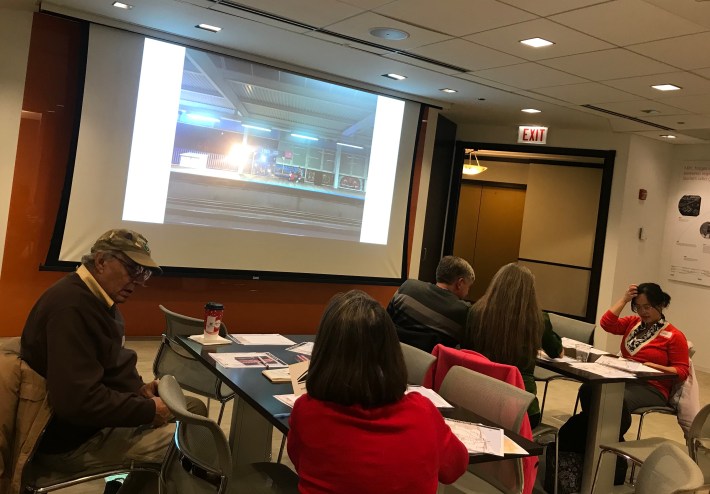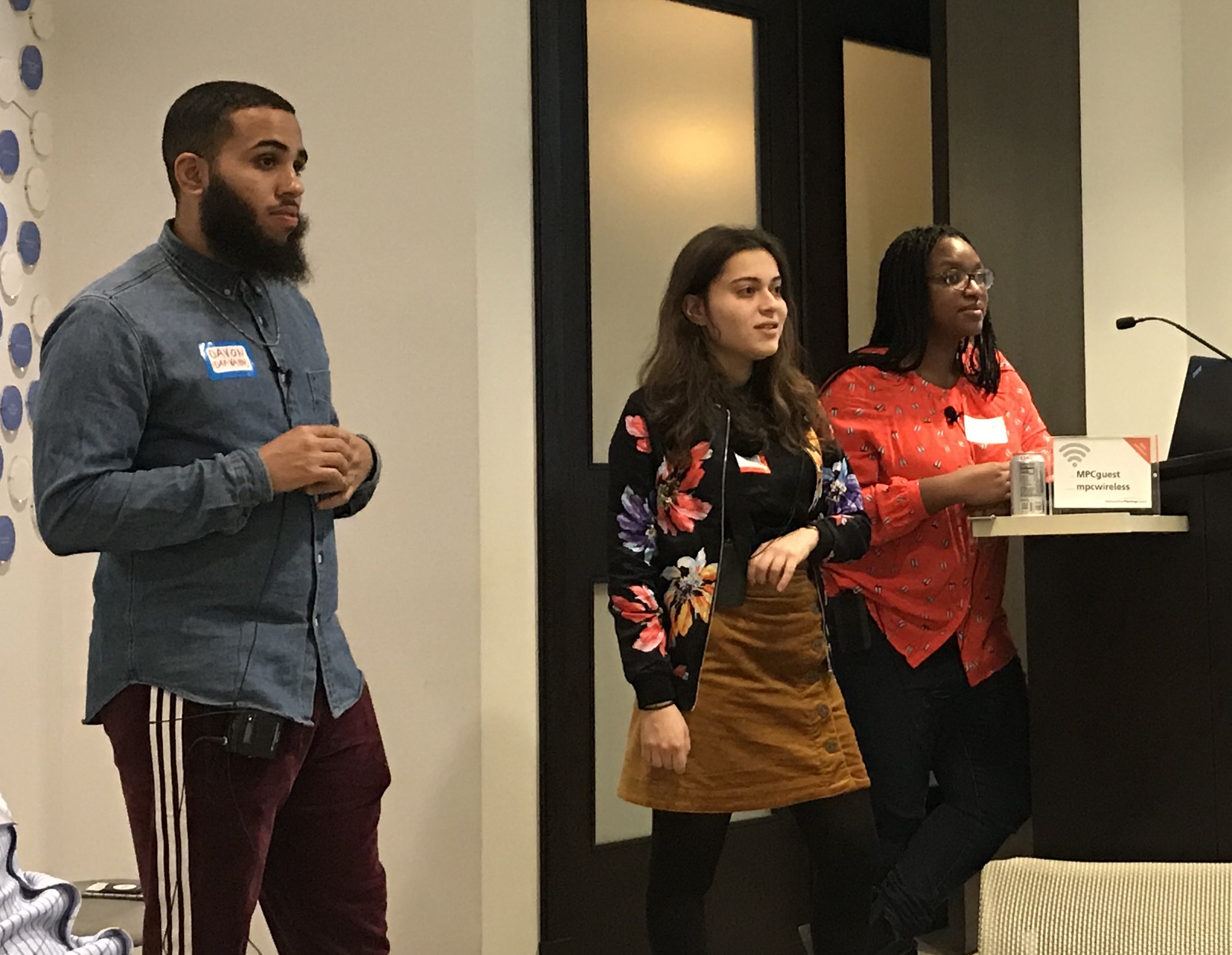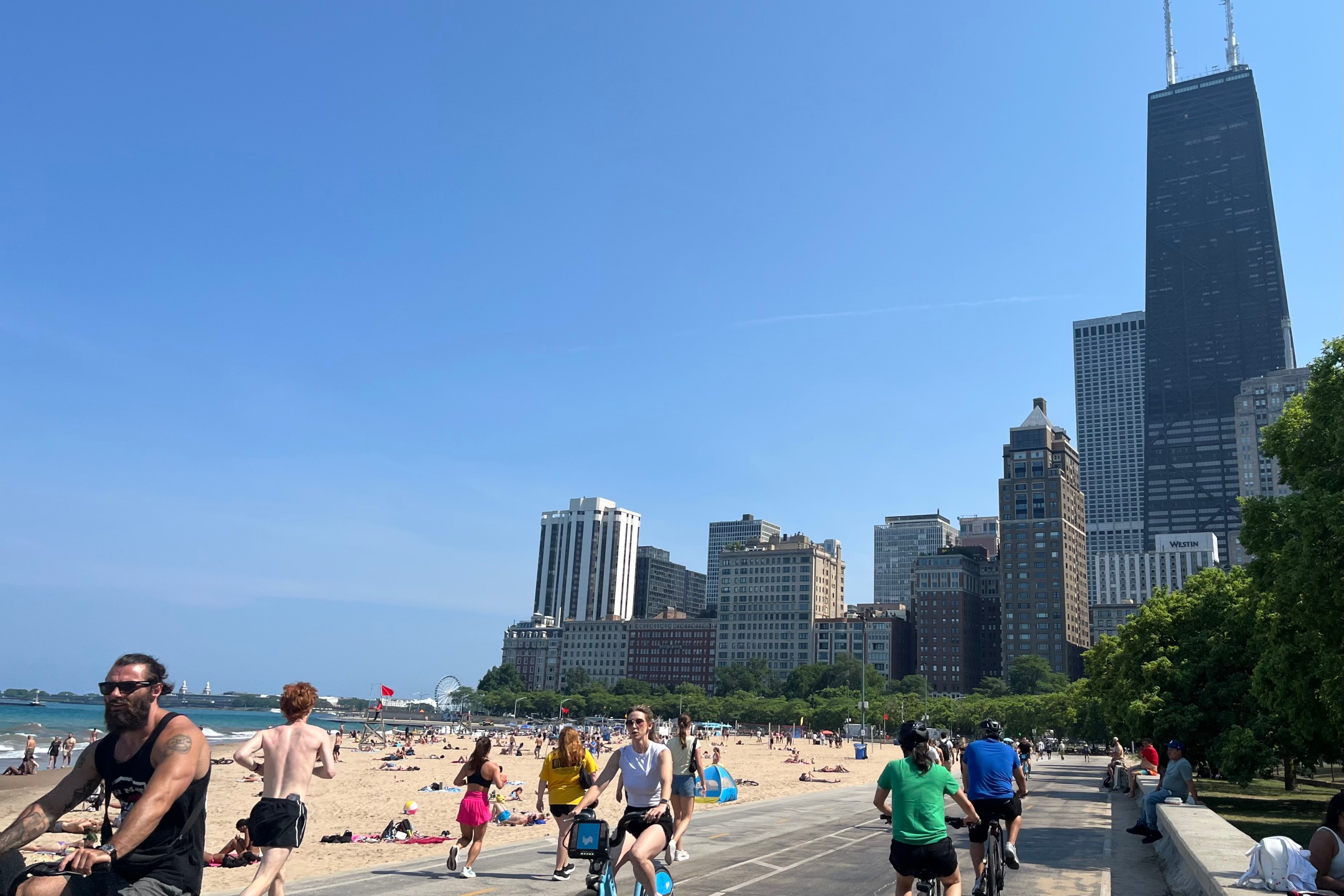We all have a lot to say about our daily commutes, regardless of how we get around, whether it is a complaint about how slow buses are, or about the traffic on the drive to work. It’s rare when that feedback has a platform for larger conversations about transportation, but City Bureau sought to make space for that discussion with a special event last week.
City Bureau is a nonprofit civic journalism lab based on the South Side. Three of the fellows for their fall reporting cycle, Danielle Scruggs, Mari Cohen, and Davon Clark, took a look at Metra's infrastructure and its ongoing budget troubles, as well as larger transportation trends around Chicagoland.
To share their findings, they partnered with the Metropolitan Planning Council, to host a public newsroom event (part of a weekly series of workshops intended to bridge the gap between journalists and the communities they serve) on Chicagoans’ daily commutes last week. MPC has also been engaging residents through their #BustedCommute campaign, which intends to highlight infrastructure needs. The room was filled with people from across the region, including the city and suburbs like Woodstock and North Chicago.
During a small group activity, people at each table discussed their daily commute to get a sense of how everyone gets around.

Jeremy Glover, a transportation associate at MPC, described his commute to work downtown from Logan Square. He said he usually bikes, but when he takes the bus, it adds an element of uncertainty. “The east-west bus routes can be tricky in the morning because there can be large variations in times due to a number of reasons.” He particularly pointed to the inconsistency of the Armitage bus. “How do we get rid of some of those variations?” he asked.
Kahari Black, another participant, noted how commuting for him has been about experimenting with different bus routes and biking from his home in Pilsen.
Mildred Williams, a North Chicago resident, spoke about the difficulty of visiting family members that live in parts of the Far South Side that aren't well-served by transit. “My family lives in the 100s -- it’s not convenient to take public transit,” she said. The Red Line currently stops at 95th Street, creating a rapid transit gap for Chicagoans who live further south, though there are plans for extending the line south to 130th Street. She said she sometimes takes transit, but when she arrives at 95th, she has to walk or take the bus the rest of the way. Sometimes she drives instead.
“It’s frustrating because we’ve always had [more] issues the further south we’ve lived,” she said. Williams has lived in Englewood, Chatham, and Roseland and has experienced the inequity in transit in trying to travel throughout the city.
To further frame the conversation, Clark offered an overview on Metra and how it connects to bridging equity gaps in the region. “Commuter [railroads] serve metropolises around the world,” he said. “What Chicago needs is not exactly what other cities needs.”
One of the most pressing points of the presentation was the urgency of the Metra budget crisis. Cohen discussed the fact that Illinois hasn't passed a capital funding bill since 2009, and how that has impacted Metra. There's an estimated $6.1 billion backlog on maintenance needed to bring the system to a “state of good repair.” 40 percent of Metra's assets are in “marginal or worn” condition. With a new state government coming to power this year, Metra plans to ask for $5 billion, which could potentially go towards buying locomotives and coaches, repairing more bridges, and improving stations.
Cohen said Metra wants to mobilize riders to advocate for Metra funding, but it can be difficult to get people on board. Some audience members pointed to a disconnect between Metra and young people, and questioned whether Metra is doing a good job of connecting to its users.
The presentation highlighted a quote by Metra CEO Jim Derwinski. “I think there are different people out there that believe that the fares themselves cover everything to operate this system, and that's so incorrect. They cover 50 percent of the operations costs and that doesn't even take into consideration any of the capital replacement costs, let alone the cost to replace the oldest stuff and make the system much more modern and efficient.”
Scruggs offered an overview of the Metra Electric District line and noted that it’s a fast option to get to the Loop from the South Side, but it’s much more expensive than taking a bus or the Red Line. The Metra Electric is currently losing ridership, according to Metra’s report. Scruggs said strategy to increase ridership could be the integration with CTA fares, which is an idea local advocates have pushed for. More capital funding could allow the whole system to be upgraded to newer electric lines. However “it needs to be more affordable and run more often,” Scruggs said.
In our small groups, we answered a few more questions about our commutes, such as our likes and dislikes, as well as brainstorming ideas for improvements.
“I wish there was a way to address issues that arise on the train, such as harassment,” Black said. He suggested figuring out how social workers could become a part of our blueprint of a better transit system. How to make our transit system safer, while not necessarily increasing policing, is an important question to consider.
Public transit and commuting doesn’t have to be something people dread. If we ask the right questions and invest in figuring out these issues out, it can potentially be a pleasant experience.
“My favorite part of my commute is how flexible it can be when it all works,” Glover said. “When it all works, it’s glorious.”
![]()
Did you appreciate this post? Consider making a donation through our PublicGood site.



